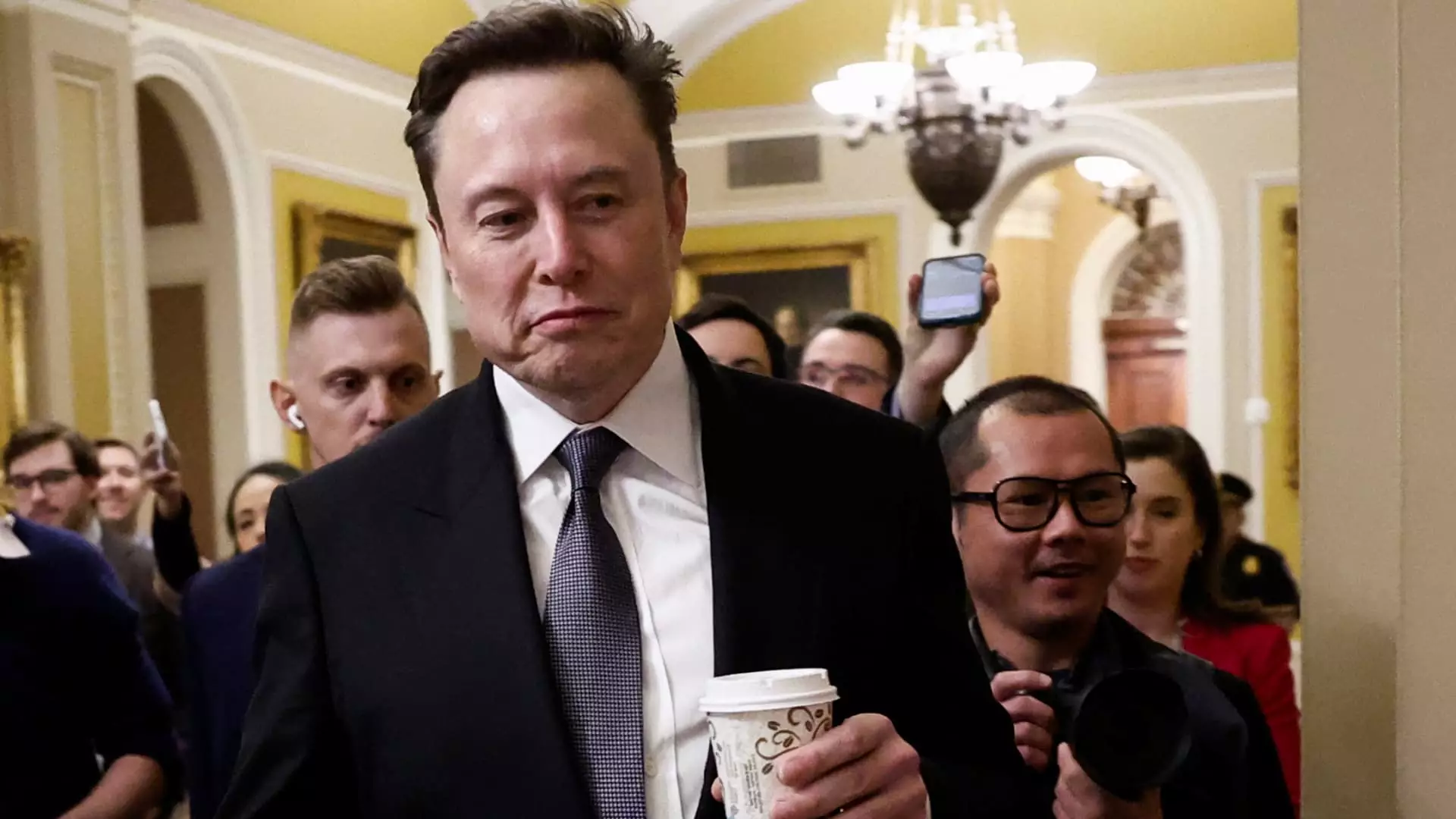In a surprising twist within the circles of U.S. legislation, House Democrats Jim McGovern and Rosa DeLauro have accused their Republican peers of capitulating to the influences of one man: Elon Musk. This situation has emerged in the context of failed bipartisan efforts to pass a government funding bill aimed at regulating U.S. investments in China, particularly focusing on advanced technologies that have significant national security implications. The fallout from this collapse not only reveals the complexities of modern politics but also illustrates the intersection of business interests and governmental policies in the sphere of international relations.
The urgency of the situation was highlighted when Congress successfully passed a stopgap funding bill over the weekend, narrowly averting a government shutdown. While this was a necessary measure, it came at a cost: the dismantling of a legislative provision that would have enabled stricter controls on U.S. investments in sectors that could potentially empower Chinese technological advancements. McGovern articulated his disappointment over social media, lamenting the lost opportunity to better secure job prospects and cutting-edge technologies within American borders. It becomes apparent that an external influence looms large over governmental decision-making, redirecting focus from national interest to corporate profit.
The conversation around Musk’s influence transcends mere corporate ethics; it fundamentally questions U.S. national security. Musk’s Tesla stands as the sole foreign automotive entity operating independently in China, devoid of the traditional local joint venture partnership that most foreign companies engage in. Alongside this, Tesla’s ambitious expansion of production capabilities in China—including a newly established battery plant—hints at a deeper entrenchment in the Chinese market. It raises a pivotal question about the balance between business expansion and national loyalty.
Moreover, Musk’s aspirations for AI development in China pose additional concerns. McGovern critiques Musk’s motivations as self-serving; he aims to curry favor with Chinese authorities while US security interests hang in the balance. The prospect of establishing an AI data center presents alarming ramifications, particularly as it could facilitate a transfer of knowledge and resources that may ultimately undermine American technological supremacy.
The situation is further complicated by the dynamics involving former President Donald Trump and his Republican allies. The manner in which Trump sought to dismantle the legislation that could potentially curb Musk’s ventures is indicative of a broader strategy to reshape political priorities under the guise of fiscal responsibility. Trump’s push for a new bill—one that would suspend the U.S. debt limit—seems to be less about governance and more about personal allegiance and quid pro quo. His demands coincided nearly precisely with Musk’s criticisms of the funding bill, suggesting a coordinated lobbying effort to shift the political narrative.
The juxtaposition of Musk’s wealth, political capital, and close relationship with Trump paints a troubling picture of modern governance, where corporate interests may eclipse the public good. DeLauro’s disdain for Musk’s ties to the Chinese Communist Party is echoed through the grievances of many who perceive a greater concern: that the foundations of American policy-making are being reshaped by elite business figures who prioritize their financial interconnections over the geopolitical integrity.
The Reaction and Broader Implications
Hitting back against criticisms, Musk resorted to incendiary language on social media, branding DeLauro “an awful creature,” which aligns with a style often associated with battleground politics. This response not only reflects Musk’s volatility but also illustrates the alarming trend of public discourse devolving into personal attacks, largely facilitated by social media platforms that amplify incendiary remarks.
The implications of this political tussle extend beyond the immediate stakeholders. As Musk continues to weave his narrative within a complicated web of political power, the sacrifices of clear-eyed governance become more pronounced. The interplay between corporate ambitions and legislative duties demands critical scrutiny, serving as a cautionary tale about the future of American democracy and the need for vigilance against the influences that threaten its integrity.
The ongoing saga of Musk’s involvement in U.S. policy underscores the necessity of reevaluating the foundations of political authority in the modern era. As political leaders navigate these turbulent waters, the stakes for national security and technological development have never been higher, and the need for transparency and accountability within government actions is paramount.


Leave a Reply